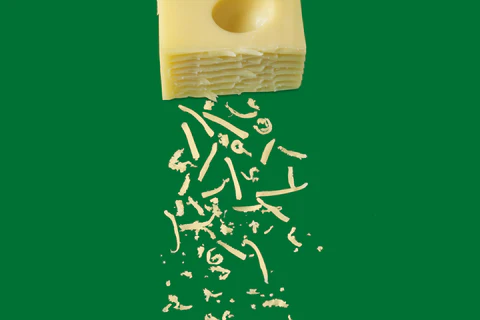Cheese Articles
History Of Cheese: (Video)
Where Did Cheese Really Come From?
Happens to Your Body When You Eat Cheese Every Day
Cheese sometimes gets a bad rap for its high-fat content. But is it healthy? Here's what research says.
CREDIT: GETTY IMAGES
Cheese is nutritious and widely enjoyed—so many dishes include it, from the classic comfort food mac & cheese to sandwiches, casseroles, salads, pizzas and more. Cheese elevates culinary dishes with flavor, aroma, texture and color. With an impressive nutritional profile, cheese offers protein, fat, calcium, phosphorus, potassium and vitamin B12—making it one of the important foods for a balanced diet.
Still, cheese gets a bad rap at times for its high-fat content. Does its reputation make you wonder what actually happens to your body when you eat cheese daily? Keep reading to find out what the research has to say.
Related: 5 Reasons Cheese Is Actually Good for Your Health
You May Reach Your Daily Calcium Intake
Most cheeses are rich in calcium, but hard cheeses tend to have more calcium than soft cheeses. For example, according to the USDA, one serving (1.5 ounces or 42 grams) of cheddar cheese contains about 300 mg of calcium, making up almost one-third of your daily calcium needs. However, a one-ounce serving of Brie only has 52 mg. The 2020-2025 Dietary Guidelines for Americans recommends that adults between the ages of 19 and 50 get 1,000 milligrams of calcium daily.
Calcium is well-known for bone development and maintaining healthy bones, but it also plays an essential role in blood circulation and muscle and nerve functions, per the NIH. A 2020 review published in Food Science and Nutrition suggests that eating cheese with higher calcium may protect against obesity, high blood pressure and type 2 diabetes.
